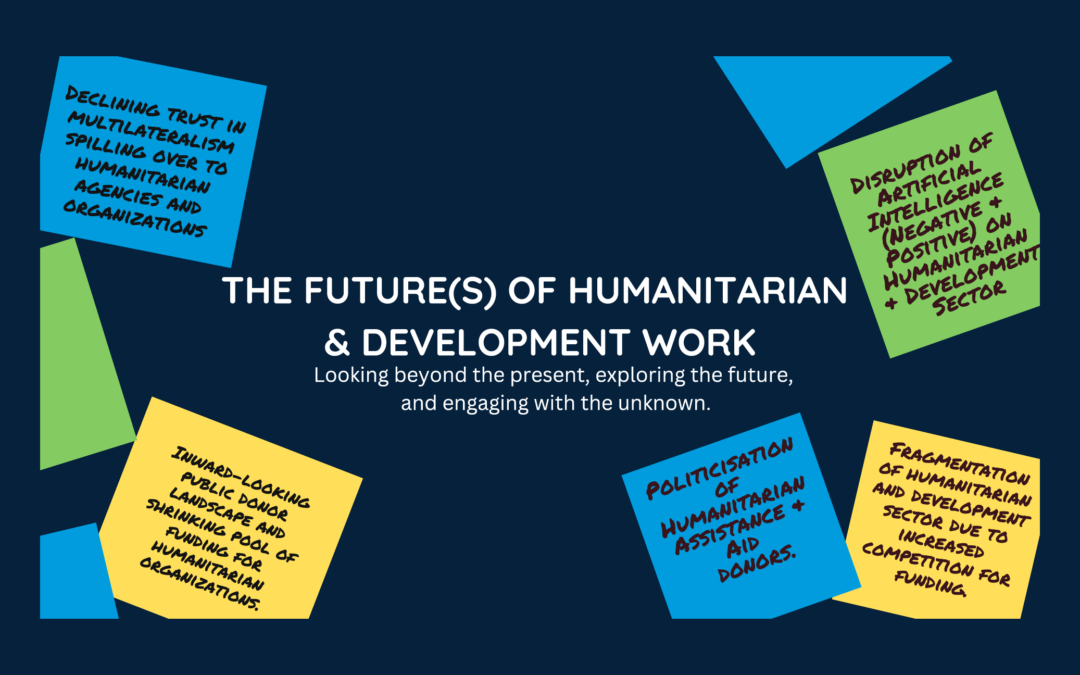On June 13th, 2023, Cooperation Canada facilitated a workshop during The Humanitarian Response Network Triannual Meeting in Toronto. The workshop was one of many Cooperation Canada intends to convene under the umbrella of its Futures Initiative and aimed at prompting discussions about the future(s) of global cooperation, in this case, the future(s) of Humanitarian and Development work.
The intent of the session was to capture through strategic conversations, humanitarian and development stakeholder perspectives, knowledge, and experiences to better understand systemic complexities and drivers of change. This was achieved by getting participants to reflect on current challenges, risks and vulnerabilities, emerging issues, and potential disruptors in their day-to-day activities and in the sector at large. Attendees were then guided through a visioning exercise, enabling them to think creatively about the future of Humanitarian and Development work and reimagining global cooperation.
Anticipating that participants might struggle with envisioning a future further away from the current realities of urgent response to growing and increasingly complex crises, Cooperation Canada’s Research and Program Officer, along with a Design Strategist and Foresight Expert, sought to create an immersive experience, taking participants from the familiar present to the unknown and plausible future.
Three stories from the session
The first is one of a sector faced with growing financial and operational challenges, rigid funding requirements, government restrictions and sanctions, as well as constrained resources to respond to the growing need for aid.
The second depicts a sector increasingly concerned with the declining trust in social institutions, progressively shrinking donor bases, development-humanitarian sector fragmentation, legislative barriers to and the politicization of aid, increased competition for funds, as well as the impact misinformation on INGOs in the digital age.
The third story reflects a vision of a more proactive, anticipatory humanitarian and development sector characterized by unity, intra-sectoral collaboration and coordinated efforts to tackle growing needs and emerging challenges. This is to be achieved through innovative and sustainable funding architectures, transdisciplinary resource sharing, the full application of humanitarian principles, and a shared conceptualization for the sector’s future.
While these stories are not representative of the sector at large, they reinforce some of the main narratives that dominate discourse on global cooperation and are of extreme value to the development of plausible future scenarios. As we engage with more partners in these reflective discussions, we look forward to seeing innovative ideas and storylines emerge and developing them into convergent narratives about what might be of cooperation in the next 7-10 years.


